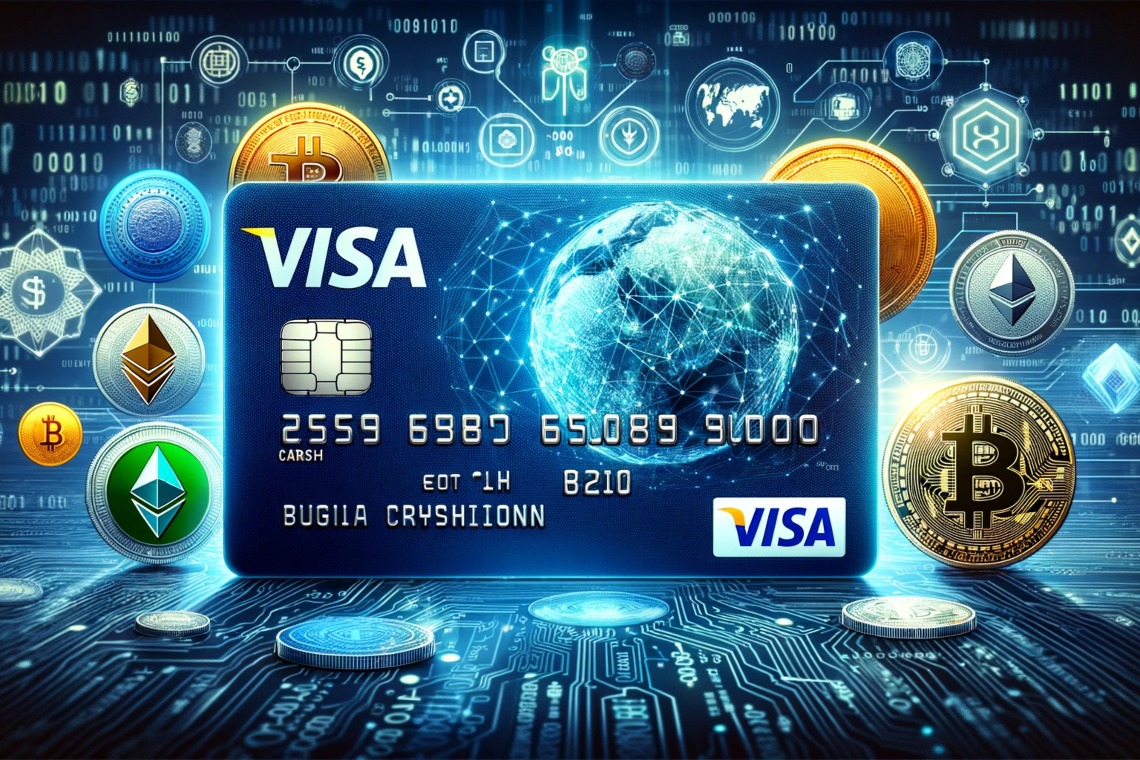Last news: Visa and Transak are joining forces to optimize transactions from crypto to traditional currency.
This partnership allows users to convert digital assets into local currency in real time, while ensuring compliance. Let’s see all the details below.
Visa and Transak improve conversions from crypto to fiat: the latest news
As anticipated, Transak, a payment infrastructure provider for crypto and NFT, announced a partnership with Visa among the day’s news.
The goal of this collaboration is to empower users on a global scale, allowing them to convert their cryptocurrency holdings into local fiat currencies.
Sami Start, co-founder and CEO of Transak, commented in a statement shared on Telegram with Finance Magnates as follows:
“We believe that this partnership marks a turning point for Web3 as a whole. Now, millions of people worldwide have an intuitive and real-time way to cash out their digital asset holdings in their local currency, avoiding compliance and fraud risks.”
The distinctive feature of Visa Direct is its ability to process transactions quickly, unlike traditional banking methods that can involve significant delays, especially at the cross-border level.
By integrating Visa Direct into the Transak infrastructure, users can take advantage of a mechanism to convert cryptocurrencies into fiat, improving liquidity and accessibility.
Yanilsa González-Ore, responsible for Visa Direct and Global Ecosystem Readiness in North America, added:
“Through Visa Direct, Transak offers a faster, simpler, and more connected card withdrawal experience, simplifying the conversion of cryptocurrency balances into fiat, which can be spent at over 130 million merchant locations that accept Visa.”
Visa’s other crypto and fintech initiatives
Recently, Visa has also partnered with Plug and Play to enhance fintech innovation in Canada.
Considering that the fintech sector is expected to grow by 25% annually until 2029, Visa’s participation aims to accelerate this trajectory of strong expansion.
Initiatives like the Fintech Fast Track Program demonstrate Visa’s commitment to providing startups with the tools and resources to revolutionize payment solutions.
The acquisition of Pismo, a cloud-based fintech, by Visa, worth 1.2 billion dollars, highlights Visa’s expansion beyond traditional payment cards.
Specifically, allowing to offer banking services and credit card processing solutions through Pismo’s cloud-native APIs.
In addition, Visa’s interest in Web3 technologies indicates a proactive approach to digital innovation.
Not by chance, the launch of Visa Web3 Loyalty Engagement, in collaboration with SmartMedia Technologies, helps bridge the gap between the realms of Web 2 and Web 3.
Explore the future of cryptocurrencies and blockchain
Visa has always recognized the need to adapt to the evolution of blockchain technology in order to avoid falling behind.
The various partnerships established over the years reflect the commitment to secure a share of the revenue generated by transactions on blockchain networks.
Cuy Sheffield, Head of Crypto at Visa, emphasizes the importance for banks and financial institutions to understand how to best serve customers in this competitive space.
Looking to the future, Visa envisions a network that involves not only traditional currencies and bank rails, but also blockchain networks, stablecoins, and central bank digital currencies (CBDC) or tokenized deposits.
The collaboration with the USDC broadcaster, Circle, is a significant step towards this goal, allowing tests of cross-border payments on the Ethereum blockchain.
Visa has also expanded its stablecoin settlement capabilities to the Solana blockchain, collaborating with commercial acquirers Worldpay and Nuvei. This allows Visa to send funds through Solana to the acquirers, speeding up settlement times.
In addition, the company has experimented with the abstraction of fees on the Ethereum blockchain, simplifying users’ interaction with blockchain-based payments.
The collaboration with several central banks to test CBDCs highlights Visa’s commitment to experimentation and innovation.
Just as the recent participation in the e-HKD pilot program by the Hong Kong Monetary Authority and the Digital Real Pilot by the Central Bank of Brazil illustrate Visa’s active involvement in CBDC initiatives.
Visa, collaborating with over 70 cryptographic platforms, offers debit and credit cards linked to cryptocurrencies, facilitating the conversion of cryptocurrencies into fiat currency for users.
The company has also obtained numerous patents related to cryptocurrencies, highlighting its commitment to protect innovation and remain at the forefront in the blockchain and crypto industry.
